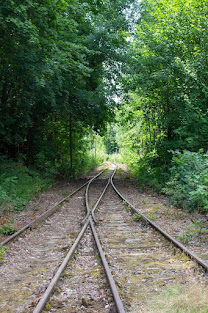blablabla
3/09/2022
1/03/2022
Note to a Friend
I'd like to think that the death of someone you deeply cared about shouldn't go unnoticed by the rest of the universe. I could never understand how life could just go on, cruelly, relentlessly, after a beloved person's death. How can it be, that something, that causes you the most excruciating sense of pain and loss, is simply brushed over by the universe, mother of all things. It seems as though the universe marches on and on, not taking any note of its participants.
I'd hope to think there's something different after a person's death, a detail, something only we, as grieving humans miss, because we're so caught up in our suffering, we're not paying any attention. We're not looking towards that one star that is flickering in the evening sky. Or the one tree, that stands leafless and bald between its overgrown brothers, because it shed all its leaves in summer. So I'd like to believe it is there. A shift, a reminiscence, a difference. Something odd, a glitch, something that stands out. It has to be there. We're just not looking.
8/15/2020
Modern Skepticism, Attempt At Reconciliation
Skepticism. No word has gained a worse reputation in a short amount of time. The expression started a long time ago, with good prospects, high hopes. Greece, I think. Yet there it is now, sinking like a stone...
What it truly means to feel skeptical as "in doubt" of people or ideas I think every person alive knows. It is an intrinsic part of being human to have the feeling, that something is wrong, "off", a certain fact, an idea, maybe even a generally considered truth. Similar to a sense of foreboding - when you think something bad is about to happen - it can be quite overwhelming.
That's why I'd like to define skepticism as a state of feeling, not being, because unlike the philosophical movement, it is not a product of thorough thought or opinion formation - no, feeling skeptical is typically what happens before that process starts, maybe even the foundation for it. Theoretically, you could remain in skepticism mode for a longer time period, but people usually don't. Same as with feelings of premonition, it is a state of mind that passes once the occasion, the trigger for it is gone.
A world pandemic is a substantial occasion for skepticism, because not only does the virus target our lives, the safety measures to contain it challenge our ways of living. And the truly agonizing part is, that we can't escape the situation, and the complete control it exerts on all of us.
Some say these feelings of lacking control are justified, others say, they are excessive, and a small price to pay for all our physical health. Whatever your position on it may be, the fact is, that at the moment, many people feel confined, trapped, and that feeling is real and needs to be taken seriously.
Confinement usually starts when someone's personal freedom is in some way limited, controlled, watched over, even a public topic of discussion. "How to sneeze" is a new etiquette, same as not showing one's nose and mouth in confined spaces. "Not be too many" is a hard rule to follow, maybe the hardest. I think, this may be the one linked to skepticism the most.
I have a suspicion, that at its core, skepticism is a direct result of feeling confined. Societal normalcies like being close to each other, hugging or talking to someone while seeing their face are tumbling right now. People are afraid to stand too close, thus, we as a people, feel separated from our own tribe. But the tribe is our history, our existence, our everything. It has always been the solution, not the problem. It has been the most basic human need ever since we stepped out of the mud and decided to live on dry land. So, feeling skeptical, when our world is turned upside down, is a completely understandable reaction.
 |
| Too symbolic? Oh, well. |
It may take crazy turns once we decide to "side" with Covidtruthers, ProCovidmeasurists or anyone, who, motivated by a feeling of skepticism, is loud and opinionated. These are not tribes we can rely on, but a mere "signaled" affiliation to some people we feel close to in our shared anxiety. And we feel the need to attach to someone, something, during this crisis. So what can we do?
I don't know. We need to try and get through it, somehow, and let the feeling run its course. Usually, what happens after skepticism is opinion formation. Let it be based on facts not fear. Don't let fear overrun your thoughts. This may sound simplistic, but you just tell your fears to shut up for a minute. "Shut up fears, while I check these facts." These fears will be much quieter, once you've collected your information.
Let me just say this: we belong to one tribe, all of us, even the loud obnoxious ones, who seem to be on the opposite side of what you feel is right. Don't let anyone or anything drive a wedge between you and someone else. We all share the same anxieties, we are all afraid. We all want to survive this, and there are no two sides to beating this virus. Let's just agree that separation is not the answer, neither to the virus, nor to the feelings we have concerning this matter.
And speaking of an enemy image: this virus is more than enough, so we really don't need any fights amongst ourselves. Let's just try and kick its ass instead.

